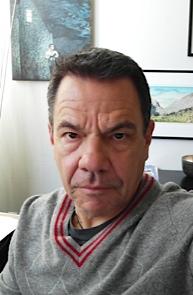 Each December, we stop for a day to raise awareness about the AIDS pandemic, to commemorate those who have died and advocate for increased access to prevention and treatment services for those who are living with the disease. And while December has become a time to reflect on the battle against HIV, we all know that the disease persists every day of every year for many members of our community.
Each December, we stop for a day to raise awareness about the AIDS pandemic, to commemorate those who have died and advocate for increased access to prevention and treatment services for those who are living with the disease. And while December has become a time to reflect on the battle against HIV, we all know that the disease persists every day of every year for many members of our community.
HIV continues to affect people of color and gay men with a particular vengeance. According to a recent article by the Kaiser Family Health Foundation, Latinos in the United States—particularly gay and bisexual men—continue to be heavily impacted by HIV/AIDS, accounting for higher rates of new HIV infections, AIDS diagnoses, and people living with HIV than their white counterparts. Moreover, studies have shown that Latinos with HIV/AIDS may face additional barriers to accessing care than whites. And the situation among African Americans is even more dire.
Not incidentally, these figures coincide with a recent report by the Centers for Disease Control about the prevalence of AIDS in gay men. Gay and bisexual men account for nearly half of the more than one million people living with HIV in the U.S. They are the only risk group in the U.S. in which new HIV infections are increasing. In a CDC study of 21 major U.S. cities in 2008, one in five gay or bisexual men was infected and nearly half of those men were unaware of their HIV status. Gay and bisexual men of color were among those who were least likely to know they were infected.
We know several things for sure about this disease. Prevention efforts are more effective when people engaging in sexual activity are not suffering from low self-esteem caused by bigotry. And we also know that there is a big difference in the life expectancy of those who receive early treatment should they become HIV-positive.
In Los Angeles, we are very lucky to have many organizations that not only offer medical care at low cost to Latino members of the LGBT community who have HIV—but also provide legal, mental-health and social services as well. In other words, agencies like Bienestar and the L.A. Gay & Lesbian Center’s Jeffrey Goodman Clinic not only treat the disease, they seek to address issues that are caused by homophobia and racism in the larger society. These efforts mean that people are less likely to contract the disease, and if they do, are more likely to get treatment early, thereby increasing their chances for a long and productive life.
But this is a responsibility we all share. In our homes, churches, schools and workplaces we must be intentional and loving in our efforts to instill a sense of pride and well-being in our young people no matter what sexual identity or orientation they express. As we begin another year, I hope we not only resolve to continue our work at ending this horrible pandemic, but also take the time in our personal lives to affirm the value of our LGBT brothers and sisters and to support the struggle we share for justice and equality for all.
Alan Acosta is the director of strategic initiatives at the L.A. Gay & Lesbian Center, the largest LGBT organization in the world. Prior to his work at the Center, Acosta was associate vice president for public affairs at Stanford University and an editor at the Los Angeles Times. He has served on the executive boards of numerous organizations, including the National Association of Hispanic Journalists and the National Lesbian and Gay Journalists Association. For two years he co-chaired the board of the National Gay and Lesbian Task Force.